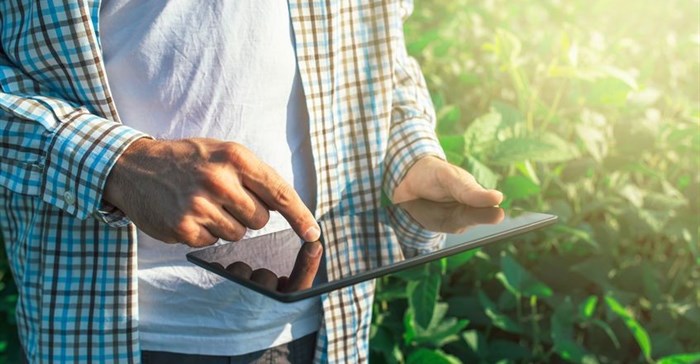





IoT is already becoming a part of everyday life, with wearable devices such as "smart watches" tracking our steps or even gauging the quality of our sleep, and sending this information directly to our mobile phones, for instance.

Like their global peers, SA technology companies - including mobile operators Vodacom and MTN - are trialling different IoT applications. Vodacom's IoT business now generates about R800m/year in revenue, with 3.3m physical objects linked to the internet at the end of September 2017.
Telkom subsidiary BCX is betting on IoT opportunities in the agriculture sector, Russell says. The company is running pilot projects on five farms across SA. "We're putting a lot of time and energy at the moment into smart farms and smart agriculture."
But Russell acknowledges that commercialising the IoT business is "tricky", partly because it is not always easy to identify who would be willing to pay for these services. If technology companies can get it right, the agriculture sector would become more productive and this would promote greater exports, cheaper food for South Africans, and more jobs, he says.
To enable the collection of data from sensors spread out over enormous farms, BCX is working on developing large-scale Wi-Fi networks using low-power wide-area network technology.
Russell says one of BCX's pilot programmes is aimed at creating irrigation systems that reduce water and energy use, as current systems can be wasteful. "Most farmers at the moment irrigate on the basis of a timer, it's very simple. So your pivot goes on at 6pm - most people water at night since it's more effective - and goes off at around 1am, come rain or shine, it doesn't matter how wet the soil is, that timer is going to kick in."
By combining data from sensors placed in the ground - which gauge the level of moisture in the soil - together with the weather forecasts, farmers can "dramatically change the amount of power and water they consume on a farm."
"We can get the pivot to purely sprinkle the water for as long as it takes for the soil-moisture sensor to know it's had enough in the context of the weather coming in."
At another farm, the company is piloting "worker management" solutions, whereby employees are tracked using tags on their belts or apps on their phones. This allows farmers to monitor when workers enter and leave the premises, and pay them accordingly. They can monitor which fields their workers are in, as well as the type of work they are doing.
"Worker management on these big farms is a big issue, both in terms of people not working but also in terms of how you pay workers," Russell says.
Elsewhere, BCX is testing different ways to use combine harvesters, tractors and other expensive equipment more efficiently, given the opportunity cost associated with idle equipment. By using a sensor to track the movements of a tractor, for instance, usage patterns can indicate when the vehicle is likely to be out of use and the farmer can lease it to another farm.
Equipment tracking is attracting the interest of banks, which tend to finance agricultural equipment and want to know that it is safe, says Russell. Insurers are also a possible target market.
But for the most part, generating income from IoT remains a tough nut to crack. Farmers tend to be reluctant to take on additional costs, says Russell.
"So who in the value chain would pay me for what we're offering?"
Russell, previously SAB's head of procurement, is eyeing large food and beverage groups such as SAB, Tiger Brands and Pioneer Foods. These companies are big users of crops and are always eager to improve margins.
Wayne Hull, MD of Accenture Digital for South and sub-Saharan Africa, says the IoT industry is still in its infancy and it will take "at least another five years to become industrialised." That said, SA's IoT market could balloon to $800m by as early as 2020.
Early adopters and innovators face uncertain returns, untested technologies, high sensor and data costs and a lack of regulation, Hull adds. He says some farmers are already using soil sensors to track acidity levels, temperatures and other variables in order to improve crop yields.
Source: Financial Mail

For more than two decades, I-Net Bridge has been one of South Africa’s preferred electronic providers of innovative solutions, data of the highest calibre, reliable platforms and excellent supporting systems. Our products include workstations, web applications and data feeds packaged with in-depth news and powerful analytical tools empowering clients to make meaningful decisions.
We pride ourselves on our wide variety of in-house skills, encompassing multiple platforms and applications. These skills enable us to not only function as a first class facility, but also design, implement and support all our client needs at a level that confirms I-Net Bridge a leader in its field.
Go to: http://www.inet.co.za